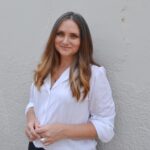Can anything new come from Nazareth?
The difference made by a kids book in the city where Jesus grew up
Father Bishara came to the Arab- Israeli Bible Society office in Nazareth with a big smile. The grey-haired priest in his black robes wanted to express his great excitement.
For all of the 33 years he had been serving 17,000 members of his church in Nazareth, they never had a Greek Orthodox Children’s Bible – until now.
“Children need to know the word of God and how it can help them every day.” – Father Bishara
With gratitude flowing from his lips, he held the first Arabic Children’s Bible in the entire Middle East next to his heart and began to explain how it had transformed his community.
No longer did they have to struggle to get Arab-Israeli Orthodox children interested in reading the Bible. Now, even the young children had wide eyes when they saw the beautiful drawings in the new Bible. And as their parents read portions of the text they have never heard before, they were “seeing, hearing, and laughing with God,” he said.
Father Bishara was proud that the Children’s Bible contains Greek Orthodox illustrations and has been translated by one of the priests of his community.
“It is very important for children to know their Bibles and doctrine, especially in our context where many people have lost hope and love. They need to know the word of God and how it can help them every day,” he said.
He believes it is a turning point in his ministry and a great celestial seed that will bring forth a plentiful harvest.
This month, Bible Society Australia is holding a special appeal aimed at supporting Bible distribution in nations where it is unaffordable or a challenge for Christians to receive a copy of the word in their heart language.
BSA is seeking support to provide a Bible to people who either don’t have a Bible in their language or don’t have access to or can’t afford a Bible. A big part of this new campaign is to provide a first Bible to those who have been waiting to receive a copy of God’s word.
“God is not limited to one people or one language.” – Maika Rasilisili
Maika Rasilisili from Maumi in Tailevu, Fiji, says being a translator of the Bible into Maumi language encouraged her to use her own language, which had been dying. Having their language in written form through the Scriptures was also encouraging Maumi people to use their own language.
“Our language was dying and I’m fortunate that I grew up with my grandmother, so I heard from her the Maumi language. My generation speaks Bauan. Those who speak the language are old and will not be around for long, so this translation salvages our language and our people and keeps it alive,” she says.
“I thank God as I learnt that God is not for just some but for all the people, and the Scripture can be translated in my language. It shows me that God is not limited to one people or one language.”
Reverend Tevita Nawadra, former president of the Methodist Church, says the Fijian New Contemporary Version Bible is good for new believers because it is in simplified, everyday language.
“This translation helps with our mission to reach out to those who are still out there and those who are growing in the faith. The old Fijian Bible is about 100 years old and some archaic words used in it are no longer used today. Some words used are rather awkward as the meaning for other dialects of Fiji may be rude and inappropriate.
“The new translation uses everyday language – more simple and clear and really helps the understanding.”
In Australia, it’s easy to forget that not everyone has the freedom and prosperity we enjoy in being able to own multiple copies of the Bible.
Many people in the South Pacific and Africa are still waiting to have God’s word translated into their mother tongues.
Make a Donation
Can you support Bible Society Australia’s push to provide Bibles to people who have not had one?






